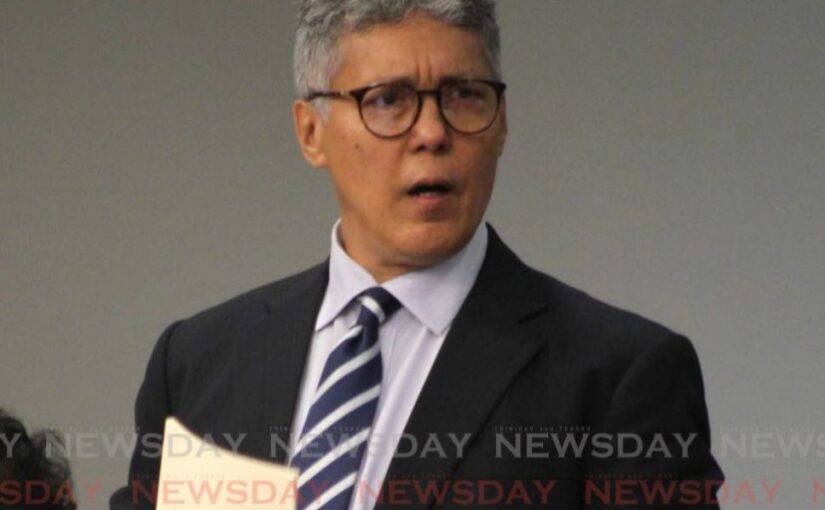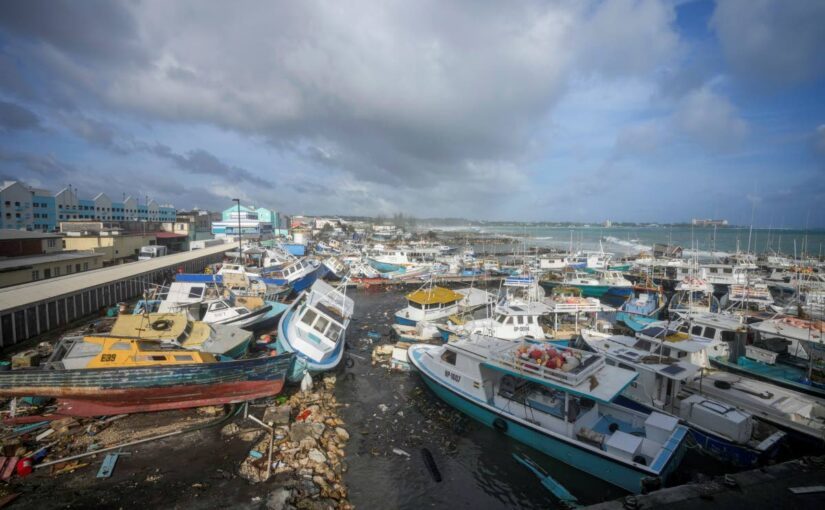Until 2019, the Busa community in Ghana’s Wa Municipal District, much like many others, openly burned the majority of its plastic waste, producing...
Vous n'êtes pas connecté
- English
- Français
- عربي
- Español
- Deutsch
- Português
- русский язык
- Català
- Italiano
- Nederlands, Vlaams
- Norsk
- فارسی
- বাংলা
- اردو
- Azərbaycan dili
- Bahasa Indonesia
- Հայերեն
- Ελληνικά
- Bosanski jezik
- українська мова
- Íslenska
- Türkmen, Түркмен
- Türkçe
- Shqip
- Eesti keel
- magyar
- Қазақ тілі
- Kalaallisut ; kalaallit oqaasii
- Lietuvių kalba
- Latviešu valoda
- македонски јазик
- Монгол
- Bahasa Melayu ; بهاس ملايو
- ဗမာစာ
- Slovenščina
- тоҷикӣ ; toğikī ; تاجیکی
- ไทย
- O'zbek ; Ўзбек ; أۇزبېك
- Tiếng Việt
- ភាសាខ្មែរ
- རྫོང་ཁ
- Soomaaliga ; af Soomaali
 Maroc - POPDIARIES.COM - A La Une - 05/Jul 09:08
Maroc - POPDIARIES.COM - A La Une - 05/Jul 09:08
Here's How These Indian Youth Activists Are Fighting Against Climate Change
As climate change accelerates and its impacts become more evident, youth activists in India are stepping up to combat this global crisis. These young individuals are not only raising awareness but also driving change through innovative solutions, grassroots activism, and policy advocacy. Here’s how Indian youth activists are making a difference in the fight against climate change: All the climate heroes have made a significant impact across a variety of sectors ranging from sustainable fashion, water resources, renewables, climate entrepreneurship, green architecture and more through their own innovations and initiatives. 1. Garvita Gulhati Technology and innovation Garvita Gulhati has been recognised by the Earth Day Network as an ‘Earth Day Network Rising Star’. She was titled the “Water Girl of India” by CNN and the Jal Shakti Ministry; was named one of the 40 under 40 environmentalists of the year in 2019; and was also shortlisted for the Forbes 30 Under 30 Asia list in 2021. In 2015, she founded Why Waste?, which has worked with over 5 lakh restaurants, 10 million people and prevented over 6 million litres of water from being wasted. “If every person on earth just recycled, stopped using plastic straws, and drove an electric car, 100 corporations would still produce 70 percent of total global emissions. The industrial revolution was the inception of climate change,” says the Bengaluru-based 22-year-old. She believes that the old slogan to ‘reduce, reuse and recycle’ now needs to be updated and edited. “The last two still take up energy, to produce and re-form. Cutting energy demand by using less of it is a highly effective step. Apart from this, as conscious citizens, we must pressurise policy makers to make renewable energy and sustainable resources more easily available in our everyday lives for our own use,” she avers. “A simple example could be the Why Waste? app, where you can calculate your water footprint, and then in turn make simple habit changes to save at least 100 litres of water every day! Impact through empowering individual action is the most sustainable path to climate action. Behavioural changes that can help reduce adverse impact on the planet, can also reduce our future dependency on difficult technologies,” she says. Garvita believes the youth must be at the forefront of demanding this very change: “Youth are the future of the world and the future consumers. If the future consumers chose sustainable, ethical, and renewable, corporations would be compelled to create and manufacture in this manner, and governments would be pushed to make policies to further support the growth of these.” Consumers and citizens need to come together to help governments and corporations re-think and re-vamp capitalism by changing our habits and consumption patterns, she says. “Every five minutes that we do not act on changing policy to build a more water-positive world, we are losing out on 50 million litres of water. That is enough to power an entire village for three months! We need to act now. We need to learn now. We need to change now,” says the water conservationist. 2. Kriti Tula Sustainable lifestyles: fashion, consumption, food and food waste Kriti Tula has worked in the global apparel industry for over a decade. After studying and working in London, she returned to India to expand her label, Doodlage. Her aim was to create India’s first global, sustainable and affordable fashion brand, focusing on reselling, repairing and upcycling while including ethically made recycled fabrics. Her work has been covered by many global organisations like Duetsche Welles, Brut, Apple Inc, Fashion Revolution, Sophie Australia and Facebook India. “A relatively recent shift that we are seeing in environmental activism is the younger generations creating solutions and holding governments and businesses accountable. An essential strategy that needs to go hand-in-hand to ensure the success of these endeavours is using patient capital from around the world to bring about consumer behaviour change and scale solutions to build parallel alternate economies,” says the 33-year-old. She believes it is important that consumers and producers work together to find solutions to save the planet with least repercussions on economic stability. Kriti Tula “It is imperative to start defining short-term actions that will lead to long-term changes to build sustainable business solutions considering the environment to be a stakeholder in both new and old businesses,” says the Delhi-based entrepreneur. Referring to the global apparel industry, she believes the culture of ‘thinking in the west and producing in the east’ is no longer sustainable. “It is leaving our working class with little or no money. Additionally, most natural resources have been overused. Climate change is no longer a local problem; over-utilisation and mis-management of natural and human resources due to lack of funds and intention is simply irresponsible,” she asserts. Kriti wants fashion brands to commit more capital towards building a better supply chain, so that manufacturers can pay better wages to their bottom-line workers and manage their waste better at source. “This needs to be mandated and monitored. If you are in a position to make a difference, climate action can no longer wait,” she says. Her label Doodlage has already worked to divert more than 20,000 metres of fabric waste from landfills by simply remanufacturing it. In the process, they ended up saving resources that would have been used in fresh fabric production and provided work to several fair-wage production units. “There are many young brands like us and individuals working to make a difference in their own capacity. These efforts should not be ignored and rather be supported to lead to a bigger change. All is not lost, yet,” says Kriti. 3. Sneha Shahi Water conservation Sneha Shahi is a conservationist and has been affiliated with the UNEP Plastic Tide Turner Campaign. She has worked with the Centre for Environment Education on water policies and climate change and has led a stream restoration programmes for the conservation of urban rivers and their diversity with an emphasis on mugger crocodiles. “When stating Nationally Determined Contributions or CSR goals, the governments and corporations fail to create any real change on the ground and it’s mostly just a greenwashing strategy,” says Sneha, who is currently a first year PhD student at Ashoka Trust for Research in Ecology and the Environment (ATREE), studying conservation science and sustainability. The 24-year-old believes that while there are policies to give framework, rights and platform to these ideas, they are riddled with loopholes to cater to capitalism and fail to deliver on environmental objectives to the extent that they lack inclusion of indigenous people and even women. Sneha Shahi “In about 20 years the people in these high-walled buildings and offices will be gone and we will have a world where people will wage wars for even the most basic necessities such as water, and this has already started to happen in most corners of the world. The lives of younger generations are at stake and their empathy towards biodiversity and humanity is what makes them a good role model to lead the change,” she asserts. The Vadodara-based activist rues that while young people are being given platforms to share their views, not much attention is being paid to their concerns and ideas. “Young voices, new innovations and ideas matter. What we can rightly observe is a dying planet,” she says. 4. Hina Saifi Clean air and renewable energy Hina Saifi, 20, has been associated with the Uttar Pradesh Campaign & The Climate Agenda since 2018. Ever since, she has been advocating for climate consciousness and educating locals from her village in Meerut through several public mobilisation activities like marches, pamphlet distribution, public meetings, chaupals, door-to-door activities and surveys. She is currently associated with En Bloc, an NGO based in Meerut. “Human-induced climate change includes both global warming driven by emissions of greenhouse gases and the resulting large-scale shifts in weather patterns,” she says, tying up the indiscriminate use of fossil fuels, increased energy consumption, deforestation and other human activities with environmental damage. “Even if efforts to minimise future warming are successful, some effects will continue for centuries, including rising sea levels, rising ocean temperatures and ocean acidification,” she says. Hina Saifi In Hina’s view, human dependence on non-renewable sources of energy is the biggest problem. “Thermal power plants are also a major reason for air pollution and we are dependent on them for electricity requirements. But we do have a clean energy source in the form of sunlight. By using solar panels, we can generate electricity ourselves, in every home and every other building,” she says, adding that lack of awareness about this option and also lack of technology to generate solar power is the major hindrance. “With rapid development and increased demand for energy, there is a need for drastic measures to limit use of conventional (non-renewable) energy. We need to pave way for setting up large projects based on biomass and solar energy as well as smaller hydro-projects,” she says. But while Hina says governments need to design strict policies in this regard, equal amount of attention needs to paid to ensure efficient implementation. “This is where young people can contribute by taking up follow up into their hands and continuing to remind the government on required actions,” she says. 5. Varsha Raikwar Grassroots climate storytelling Varsha Raikwar has worked as a radio reporter for Radio Bundelkhand 90.4FM for four years and has contributed to programmes that aim to empower women, discuss climate change and sustainable livelihood opportunities. Through her community and on-ground work in Niwar District, Madhya Pradesh, she covers issues related to heritage conservation, Bundeli legislation and policy making, health and cleanliness as well as awareness on prevention of early marriage of girls, voting awareness and new dimensions of agriculture. “Earth is the only planet with water and life, and we need water to survive. In most villages, the sources of water have either dried up completely or yield very little water. People are forced to fetch drinking water from far-off wells in agricultural fields. Air and water pollution due to improper waste management along with pollution of the natural environment are major issues that concern all of us,” says the 27-year-old activist. Varsha Raikwar For developing countries such as India, economic growth and activity that can help lift millions out of poverty also unfortunately spells environmental damage in many ways. “Therefore, improving environment management and reducing pollution should be an integral part of sustainable economic development,” says Varsha. Varsha believes there is a need to make the available knowledge of environmental issues more practical, so that the masses can understand them. “In these dire circumstances, there is a need for the youth to understand our responsibilities and make better decisions. This way, awareness could be spread in larger society about the environment,” she says. 6. Neha Shivaji Naikwade Livelihoods and entrepreneurship Based in Jalna, Maharashtra, Neha Shivaji Naikwade is a mechanical engineer by training and co-founder of Parvaah, a youth-cell working toward zero-waste initiatives. She has worked extensively on policy making and CSR initiatives through her corporate work and experience as a Policy in Action Fellow at Young Leaders for Active Citizenship (YLAC). Neha was also shortlisted for the Global Policy, Diplomacy and Sustainability Fellowship. She currently works with the Climate Collective Foundation as a Project Manager where she helps develop and strengthen climate-oriented startups and early-stage climate-tech entrepreneurs. “No country today is immune from the impacts of climate change. If left unchecked, climate change will push 132 million people into poverty over the next 10 years,” says the 27-year-old. She quotes an analysis by the World Bank, which found that natural disasters cost about $18 billion a year in low- and middle-income countries through damage to power generation and transport infrastructure alone. Such natural disasters also trigger wider disruptions for households and firms costing at least $390 billion a year. Neha Shivaji Naikwade “So, it is in the best interest of all the countries to deploy stringent regulations to cut down emissions, and establish policies to accelerate the transition to renewables, roll out plastic, help businesses switch to sustainable practices, and most importantly build adaptation and resilience capabilities,” says Neha, who like her peers, hopes for policy measures that can help states, businesses and financial institutes drive economic growth while addressing climate change. She has a lot of faith in the power of the youth. “Young people are increasingly aware of the challenges and opportunities that the necessary transition to low carbon growth entails, and many are joining the global dialogue on solutions, getting involved and taking action at every level possible. Today’s youth have the energy and knowledge to lead our societies towards a low carbon and climate resilient future,” she says. She goes on: “The efforts of young changemakers on educational, awareness-raising and behavioral change campaigns have been critical in raising political ambition and inciting their governments and the international communities to scale up action on climate change.” Clean-up drives organized by youth activists are addressing the issue of pollution and waste management. Afroz Shah, known for his work on the Versova Beach clean-up in Mumbai, has inspired many young volunteers to join his efforts. These clean-up drives not only restore natural habitats but also educate the public about the impact of waste on the environment. Here's the link to apply for the same: https://www.unitedwaymumbai.org/cleanshores https://www.facebook.com/mahimbeachcleanup/ https://www.instagram.com/forfutureindia/?hl=en https://www.greenline.org.in/programmes/green-lead-volunteers/versova-beach-cleanup Indian youth activists are at the forefront of the fight against climate change, using their creativity, passion, and determination to drive meaningful change. Through awareness campaigns, grassroots movements, innovation, policy advocacy, education, and direct action, they are making significant strides in mitigating the impacts of climate change. As these young leaders continue to inspire and mobilize others, their efforts are paving the way for a more sustainable and resilient future for India and the world.
Articles similaires
List Of 7 Bollywood Actors Engaging In Sustainable Fashion
Sustainable fashion has become a global movement, and Bollywood actors are playing a significant role in promoting eco-friendly choices. As...
Global Citizenship And Energy Transition: A Pathway To Enhanced Human Security – OpEd
This article seeks to posit that the idea of global citizenship and energy transition is the way forward in order to improve the human security...
Mining The Planet For Renewable Energy – OpEd
Reliable energy, human rights, land impacts, air and water pollution, lost wildlife get ignored This election year, several critical issues...
Independent Senator Vieira: Update environmental laws
SPEAKING in a 50-minute sitting of the Senate on the afternoon of July 5, Independent Senator Anthony Vieira, SC, agreed with with Prime Minister's...
Preserving Indigenous Rights While Protecting The Planet
In a world grappling with escalating climate crises, the way forward can include both modern scientific knowledge and traditional wisdom, according...
Bank of Cyprus ‘goes green’ on its products and services
Climate change poses a major challenge in the current era. The international community recognises the need to tackle climate change, and has already...
Basic Model Of Estimating Lost Costs For Cities Affected By Climate Change – Analysis
By Zhao Zhijiang Pingjiang County in China’s Hunan Province has recently been struck by severe and persistent rainstorms, affecting over 340,000...
Hurricanes and climate change
Dr Anjani Ganase reflects on the effects of devastating hurricanes on human communities and wonders if we can adapt before catastrophes force...
Alberta event explores wild hope for creation
Don’t get “stuck in rage or paralyzed by fear,” said Joanne Moyer. “[Be] defiantly hopeful, despite the odds.” Moyer, associate professor at...
Les derniers communiqués
-
Aucun élément




